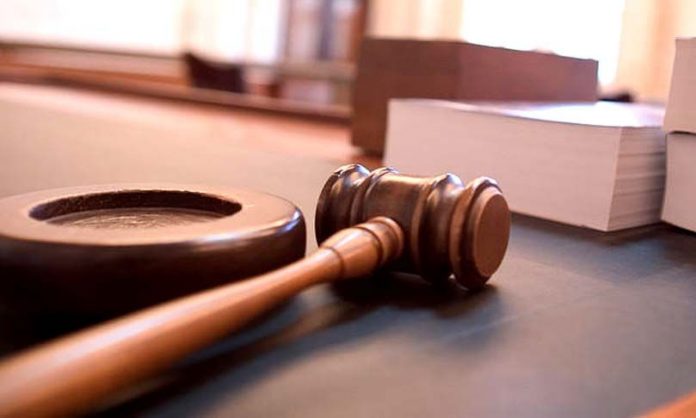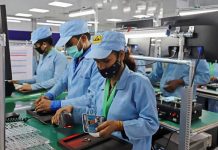The article is written by Saswata Tewari from the University of Petroleum and Energy Studies Dehradun. This article discusses the recent judgement given by the Nagpur bench of the Bombay High Court regarding the medical reports being sent to the patients. Several other issues decided by the High Court have also been discussed in this article.
Table of Contents
Introduction
While the entire world has been affected by the COVID-19 virus, several other issues related to the virus have been identified, compounding the public’s problems. It has been seen many times that the health authorities have been negligent in delivering check-ups, medications, vaccinations, and bed facilities, among other things. It is very dangerous for the general population to deal with such issues on their own because it is not only expensive but also raises the risk of infection with the deadly virus. Recognizing the plight of our country’s people, officials have taken action and made decisions to make certain issues more manageable for the general public.
On 15th April 2021, the Nagpur Bench of Bombay High Court ordered the medical laboratories that are currently undertaking RT-PCR tests for checking COVID detection to make sure that the test results are promptly sent to the concerned patient through Whatsapp, even if the patient tests negative. This was a suo moto case that was filed last year, and the bench had been hearing the suo moto PIL on various issues relating to the COVID-19 management in Nagpur and other cities within the bench’s territorial jurisdiction.
About the case
The case was about the difficulties that were faced by the patients while getting the results of their RT-PCR test. This delay in getting the reports was happening because the laboratories were not providing the reports to the patients unless and until the said reports were uploaded on the Indian Council of Medical Research (“ICMR”) portal and often the servers were even slow which further added to the delay in uploading the reports.
Dr Mukesh Chandak, the intervener, has also highlighted the difficulties that patients faced in obtaining the RT-PCR test results. Also, the advocates who were appearing for the Interveners had proposed to the court that the results of the patients, irrespective of being positive or negative of the COVID virus, should be sent quickly to the patients through Whatsapp and also the hard copies of the reports must be made available to patients immediately, with no delay in delivering any such reports due to the fact that they have not yet been uploaded to the ICMR portal. They suggested that with the concerned issue of uploading the reports on the ICMR portal, the same should be done as is required because this information is of much significance for the concerned government and the authorities who are responsible to take necessary decisions and action in the matter.
The High Court had given the decision in accordance with the suggestions made by the advocates of the intervener. It was directed for the laboratories who were conducting the RT-PCR test that they should make the reports available for the patients, both on Whatsapp and on hard copies and after doing so, the reports of the patients who test COVID positive should be uploaded on the ICMR portal within 24 hours and the reports of those patients who test negative for the virus should be uploaded on the ICMR portal within 7 days. It was further directed by the court that if the laboratories fail to follow these instructions, the authorities will be able to take whatever action they see fit against the laboratories in question.
Similar cases
The decision was given by the judges Za Haq and Amit B Borka. The Bombay High Court’s Nagpur bench had previously ruled on similar issues affecting the general public. Some of these issues have been mentioned below:
Allotment of beds to patients
In this case, the High Court was discussing the query as to the enhancement of the facilities at Government Medical College and Hospital (“GMC”) and Indira Gandhi Medical College and Hospital (“IGGMC”). The court was told that a decision had been made in a meeting chaired by the Minister of Health Department that all 600 existing beds at GMC, including ICU and HDU beds, would be made functional, and that 400 additional beds, including some ICU and HDU beds, would be built to meet the needs of COVID-19. As a result, GMC, Nagpur will have a full-fledged 1000-bed COVID-19 facility. At the IGGMC in Nagpur, there is no plan to increase the number of beds.
The court also stated that it desired an increase in the 1000 beds made available for Covid-19 patients in the building where the ICU and HDU beds for Covid patients are located. Out of the 600 already existing beds, 90 beds are in the basement area, which has to be removed from the basement and shall be relocated to someplace else in the same building. The explanation for this is that the basement is unsanitary and should not be used for patient beds of any kind. Within a 15-day cycle, the beds of Covid patients in the same building must be moved to another building. The building must be kept clean, and the management and administration of Covid 19 patients must be handled by the IAS Officer stationed there, in collaboration with the other officers or doctors in charge of GMC administration and management.
The court further directed that the Divisional Commissioner, Nagpur Municipal Corporation Commissioner, and the Dean, Government Medical College and Hospital must ensure that the 1000-bed facility for COVID patients is well-equipped, that hygiene is maintained, and that a sufficient number of doctors and paramedical staff is posted within the time limit of one month and a report to that effect is submitted to the court.
Death rate
In this case, a complaint had been received where it was stated that the State Government was not responding to the proposal sent by the Municipal Commissioner regarding the creation of infrastructure of 1000 beds at Mankapur Stadium, out of which 400 beds were to be made for the ventilators and 300 beds will be oxygenated.
The situation of Nagpur was highlighted by the court as the death rate was increasing in the State day by day. The situation was so bad that the mortuaries were full, crematoria were overflowing, and patients were unable to get ventilators or oxygenated beds. Even in such a scenario, the State Government was not taking action to reduce the death rate.
The High Court had further directed the State Government to decide on the proposal sent by the Municipal Commissioner within one week. If the State Government fails to act on the proposal within the time frame set by the court, the Chief Secretary of the State will be summoned to submit a statement and clarify the difficulties in carrying out the duties.
Non-availability of Remdesivir and Tocilizumab injections
In this case, it was submitted on behalf of the Amicus Curiae and the advocates for the petitioner and interveners that due to a lack of beds in Government and dedicated Hospitals, vulnerable patients are forced to go to non-dedicated Hospitals, and some serious patients need Remdesivir Injections, which they are not receiving. During the hearing, it was revealed that certain criminals are engaging in illegal acts, resulting in the non-availability of Remdesivir injections for those in need. The petitioners claimed that some people are having prescriptions for Remdesivir injections in the name of the patient from various doctors and then selling them on the black market. Senior Advocate M.G. Bhangde, representing the state, and Advocate Shri S.M. Puranaki, representing the Nagpur Municipal Corporation, both claimed that a solution to the Remedesivir grievance would be sought by the next day.
Another issue that was brought up was the lack of Tocilizumab injections. The issue was that Tocilizumab injections had mysteriously disappeared from the market. Tocilizumab injections were being sold at private pharmacists’ counters, and it was said that these injections were being sold at exorbitant rates and that there was reason to believe that certain people had hoarded them. The Court ordered the Commissioner of Food and Drug Administration, Nagpur, to conduct an immediate investigation into the matter and file a report on the petition’s record by the next day. The Court wanted that the movement of Tocilizumab injections to flow from Production Centers/ Factories to wholesalers and retailers, as well as the dispensing of these injunctions from private pharmacists’ counters, be monitored and that if there is any evidence of hoarding, appropriate legal action is taken against the wrongdoers.
A suggestion of creating a centralized portal
In this case, the High Court had suggested the creation of a centralized portal for the issue of Remdesivir Injections. Provisions were directed for the centralized portal containing the following details:
- Name of the patient with details/ number of Aadhar card of the patient.
- Name of the hospital where such a hospital is hospitalized/ treated.
- The number of dose/ doses given to the patients.
It was further submitted to the court by the advocate representing the State that the centralised portal will be launched right away and that there would be a lot of publicity about it. It was also stated that hospitals where Remdesivir Injections are delivered to patients, must ensure that the required data is updated on the centralised portal as soon as the dose of Remdesivir Injections is delivered to the patients. Furthermore, if a patient is unable to obtain a bed in a dedicated hospital and is required to get Remdesivir Injections, the dose/doses can be delivered in the dedicated hospital’s Outdoor Patient Department, and the concerned hospital will be required to post the details on the centralised portal immediately.
If a patient is unable to obtain a bed in a dedicated hospital or service even in the dedicated hospital’s Outdoor Patient Department, and the patient is treated in a non-dedicated hospital by a doctor, the Collector of the District shall ensure that the dosages of Remdesivir Injection are made available to such patients. Remedesivir Injection shall not be denied to such a patient solely because he had treatment at a non-dedicated Covid-19 institution. In this scenario, the treating doctor (with a minimum M.B.B.S. degree) from the non-dedicated Covid-19 Hospital will have to certify in the required format with all essential reports that the patient requires a dose/doses of Remdesivir Injections. In addition, the information must be posted to the centralised portal in this scenario.
COVID-19 committee
The Bombay High Court Nagpur bench had already formed a COVID-19 committee to discuss the emergency created by the outbreak of the COVID 19 pandemic in Nagpur. This was done to sort out the problems faced by the private hospitals and this was a measure to coordinate the activity between the authorities and the private hospitals. The coordination committee was to be comprised of the following members:
- The Mayor Shri Sandeep Joshi, Chairman of the Committee
- Divisional Commissioner, Nagpur
- Municipal Commissioner, Nagpur or his nominee
- The President of the Indian Medical Association
- Dr Anil Laddhad to represent the private hospitals
The goal of the committee should be to reduce the amount of inconvenience and hardship for hospitals and patients and the concerns of the private hospitals will be thoroughly investigated by the committee. If a unanimous resolution is reached on a particular topic, the parties are free to proceed and act in conformity with that decision in the committee.
Conclusion
Even though the Nagpur bench of the Bombay High Court cannot eradicate the virus, it is doing everything in its power to make these hard times manageable for the public. They have provided an example for the entire world, demonstrating that even in the face of adversity, they can find ways to ensure that healthcare authorities are adequately operating and supplying what the public requires to alleviate their problems. Some of the other issues which were dealt with were the following:
- BVG ambulances
- Over-stocking of oxygen in certain hospitals leading to deficit elsewhere
- Availability of life-saving drugs
- Costs involved for the medical facilities
- Safety of the patients and the staff attending to them at the institutional quarantine centres
The Bench had also been tracking COVID facilities in cities such as Mumbai to make recommendations to the State government and local authorities on how to best handle the pandemic.
References
- https://www.indiatoday.in/coronavirus-outbreak/story/bombay-hc-directs-labs-to-give-rt-pcr-reports-to-covid-positive-patients-within-24-hours-1791890-2021-04-17
- https://in.news.yahoo.com/covid-19-rt-pcr-test-140044996.html
- https://www.lawinsider.in/bombay-hc-orders-medical-labs-to-send-the-rt-pcr-reports-to-the-patient-immediately-via-whatsapp/
- https://goachronicle.com/results-of-rt-pcr-tests-should-be-sent-to-patients-immediately-through-whatsapp-bombay-high-court-to-medical-labs/
LawSikho has created a telegram group for exchanging legal knowledge, referrals, and various opportunities. You can click on this link and join:
 Serato DJ Crack 2025Serato DJ PRO Crack
Serato DJ Crack 2025Serato DJ PRO Crack











 Allow notifications
Allow notifications


